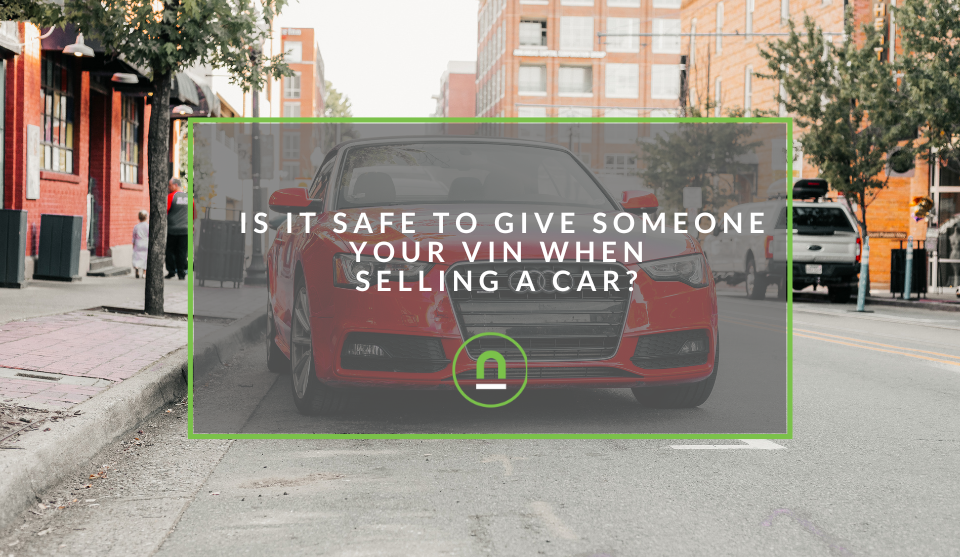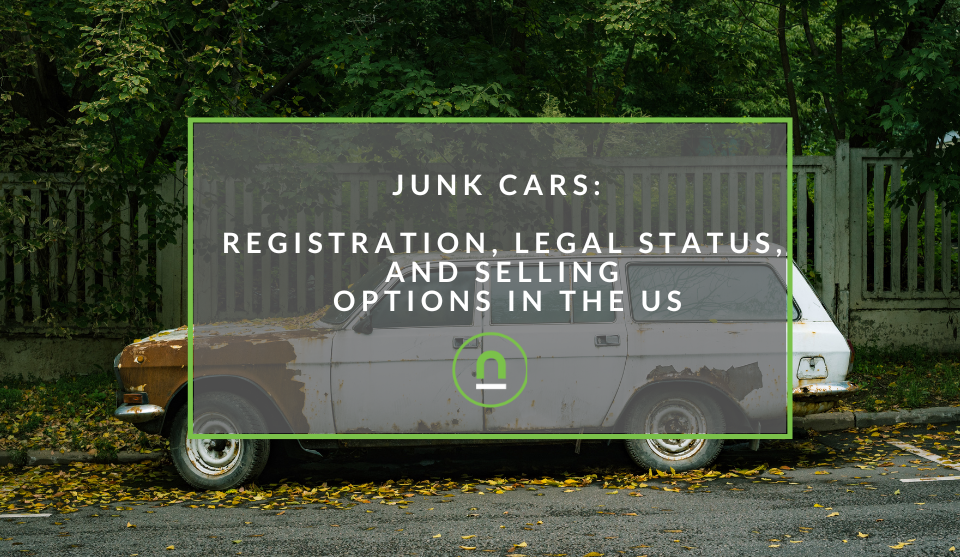Recent posts

Petrol heads
Is It Safe to Give Someone Your VIN When Selling a Car?
24 May 2025

Money Talks
SA's Financial Frontier: Business Growth Through Trading
23 May 2025

Geek Chic
5 Best Android MDM Solutions for Small Businesses (2025)
16 May 2025

Petrol heads
Junk Cars: Registration, Legal Status, and Selling Options in the US
14 May 2025
Popular posts
Extravaganza
Trending Music Hashtags To Get Your Posts Noticed
24 August 2018
Geek Chic
How To Fix iPhone/iPad Only Charging In Certain Positions
05 July 2020
Extravaganza
Trending Wedding Hashtags To Get Your Posts Noticed
18 September 2018
Money Talks
How To Find Coupons & Vouchers Online In South Africa
28 March 2019
Junk Cars: Registration, Legal Status, and Selling Options in the US
14 May 2025 | 0 comments | Posted by Che Kohler in Petrol heads
The term "junk car" gets thrown around frequently in automotive discussions, but what exactly qualifies a vehicle as junk, and what are your options if you own one?
It can't just be to rust out in the backyard or become some makeshift and possibly dangerous play toy for your kids.
If you're dealing with an old family car that's seen better days or are considering purchasing a salvage vehicle, understanding the legal and practical aspects of junk cars can help you make the best decision for you.
Be it trying to extract some cash, getting rid of an unsightly site on your property or just a plain old headache.
What Defines a Junk Car in the US Market?
A junk car, also known as a salvage vehicle, typically falls into several categories that render it unsuitable for standard road use.
The most common classification involves vehicles with damage exceeding 75-80% of their actual cash value, though this threshold varies by state, so enquire with local scrapyards on what the definitions are for your state.
What do insurance companies say?
Insurance companies usually declare these vehicles "total losses" after accidents, floods, fires, or other significant damage events.
Beyond insurance determinations, cars may be considered junk due to mechanical failure where repair costs exceed the vehicle's worth, extensive rust or corrosion that compromises structural integrity, missing essential components like engines or transmissions, or simply reaching an age where parts are no longer available or economically feasible to replace.
What do motor vehicle departments say?
State motor vehicle departments maintain specific criteria for junk vehicle classification. Some states focus primarily on the damage-to-value ratio, while others consider factors like the vehicle's ability to operate safely on public roads, emissions compliance, and overall roadworthiness.
Defining your state's specific definition is important because it affects your options for registration, sale, and legal operation.
The Registration Challenge: Can You Register a Junk Car?
The short answer is complex: it depends on your state's laws and the specific condition of your vehicle. Most states prohibit registering vehicles that have been officially classified as junk, salvage, or total loss until they undergo proper inspection and certification processes.
However, the situation becomes more nuanced when dealing with vehicles that might be considered junk due to age or mechanical issues but haven't been officially branded by insurance companies or state agencies. In these cases, registration may still be possible if the vehicle can pass required safety and emissions inspections.
For officially designated salvage vehicles, most states require a rebuilding process before registration becomes possible. This typically involves extensive repairs, professional inspections, and documentation proving the vehicle meets safety standards. The rebuilt vehicle then receives a "rebuilt" or "reconstructed" title, which permanently indicates its salvage history but allows for legal registration and operation.
Some states offer limited registration options for junk vehicles, such as "parts only" or "off-road use" registrations. These don't permit street driving but may be useful for specific purposes like farm work, racing, or legitimate parts harvesting operations.
The Registration Process for Salvage Vehicles
If you're attempting to register a vehicle with salvage history, the process typically begins with obtaining all relevant documentation, including the salvage title, receipts for all parts and repairs, and any previous inspection reports.
You'll need to complete substantial repairs addressing all safety-related issues, structural damage, and mechanical problems that contributed to the salvage designation.
The next step involves professional inspection by state-certified inspectors or authorized mechanics who verify that repairs meet state standards and that the vehicle is roadworthy. This inspection often includes detailed photography and documentation of the repair work performed.
Following successful inspection, you'll submit an application for a rebuilt title along with all supporting documentation and required fees. Processing times vary significantly by state, ranging from a few weeks to several months.
Once approved, you'll receive a rebuilt title that allows for standard registration and legal road use, though the vehicle's salvage history remains permanently documented.
Selling Options for Junk Cars
Contrary to common belief, junk cars do have value and can be sold through various channels, each offering different advantages depending on your situation and goals.
Scrap yards
Scrap yards and metal recyclers represent the most straightforward option for truly unusable vehicles.
These businesses purchase cars primarily for their metal content, with prices typically based on current scrap metal rates and the vehicle's weight. While this won't make you rich, it provides a guaranteed sale and often includes free towing services.
Auto salvage yards offer another avenue, particularly for vehicles with valuable parts.
These businesses dismantle cars and sell usable components to repair shops and individual customers. Vehicles with sought-after parts, rare components, or popular model compatibility often fetch higher prices than straight scrap value.
Private sales
Private sales to individuals represent a potential middle ground, especially for mechanically inclined buyers seeking project cars or parts vehicles. Online platforms like Craigslist, Facebook Marketplace, and specialized automotive forums provide venues for reaching these buyers. Honest disclosure about the vehicle's condition is crucial for avoiding legal issues and building trust with potential purchasers.
Specialized junk car buying services
Specialized junk car buying services have emerged as convenient alternatives, offering quick cash purchases with minimal paperwork and free vehicle pickup. While prices may not always match what you could obtain through private sales, these services provide speed and convenience that many sellers value.
Car owners who have encountered title problems can turn to companies that claim they buy used cars without a title in Los Angeles and other regions, should they wish to get rid of the vehicle as easily as possible.
Donations
Donation to charitable organizations offers a tax-deductible alternative to selling, though you'll need to ensure the charity can actually use or sell the vehicle to qualify for deductions. Many charities partner with towing companies and auto auctions to handle donated vehicles efficiently.
Legal Considerations and Documentation
Regardless of how you choose to handle your junk car, proper documentation is essential for avoiding future legal complications. Always transfer the title properly when selling, even to scrap yards, to avoid liability for any future issues with the vehicle.
Keep records of the sale, including buyer information and transaction details.
If your state requires it, notify the Department of Motor Vehicles about the sale to remove the vehicle from your registration records. This prevents ongoing liability for licensing fees, property taxes, or legal issues if the buyer fails to properly transfer ownership.
For vehicles without titles, many states offer alternative documentation processes, though these typically involve additional paperwork and fees. Some junk car buyers specialize in purchasing title-less vehicles, though expect lower offers due to the additional complications involved.
Maximizing Value from Your Junk Car
Before settling on a disposal method, consider ways to maximize your return. Remove valuable personal items and aftermarket accessories that can be sold separately. Research your vehicle's parts value online to understand whether individual component sales might exceed whole-vehicle offers.
Get multiple quotes from different buyers to ensure competitive pricing. Scrap metal prices fluctuate regularly, so timing your sale during peak prices can increase your return. Similarly, seasonal demand for certain parts or project cars can affect private sale opportunities.
Consider the total cost of ownership while making decisions.
Sometimes, the expense and effort required to register and repair a junk car exceed any potential benefit, making disposal the most economical choice.
One Man's Junk is Another Man's Treasure
Understanding junk car classification, registration possibilities, and selling options empowers you to make informed decisions about problem vehicles. While registration of true junk cars is generally prohibited or heavily restricted, various selling alternatives ensure these vehicles retain some value.
Whether pursuing scrap sales, parts harvesting, or a charitable donation, proper documentation and legal compliance protect you from future complications while maximizing the benefit from your automotive liability.
Are you looking to promote your business?
Automotive businesses can create a free business listing on nichemarket. The more information you provide about your business, the easier it will be for your customers to find you online.
Registering with nichemarket is easy; all you will need to do is head over to our sign-up form and follow the instructions. If you require a more detailed guide on how to create your profile or your listing, then we highly recommend you check out the following articles.
Recommended reading
If you enjoyed this post and have time to spare, why not check out these related posts and dive deeper into the rabbit hole of vehicle management?
- The Most Frequently Stolen or Hijacked Cars In South Africa
- Get Instant Quotes & Sell Your Car Online In South Africa
- How Much Does A Personalised Number Plate Cost In South Africa
- How To Save Money To Buy Your Dream Car
- 7 Documents You Need When Selling A Car
- 3 Best Road Trips In South Africa
- 7 Ways To Choose The Best Car Roof Rack
- 5 Car Preparation Tips for a Long Road Trip
You might also like
Do Not Whistle at Night: South Africas Strangest Superstitions
26 April 2025
Posted by Julian Parker in Mind, Body & Soul
Discover South Africas most enduring superstitions, from midnight whistling to mirror placement and why these beliefs still shape everyday life for s...
Read moreAI-Powered Overviews Are Nicking Your SERP Clicks
11 May 2025
Posted by Che Kohler in nichemarket Advice
How AI-powered overviews have begun to shrink click-through rates from Google and Bing and what that means for the average site trying to secure orga...
Read more{{comment.sUserName}}
{{comment.iDayLastEdit}} day ago
{{comment.iDayLastEdit}} days ago
 {{blogcategory.sCategoryName}}
{{blogcategory.sCategoryName}}

